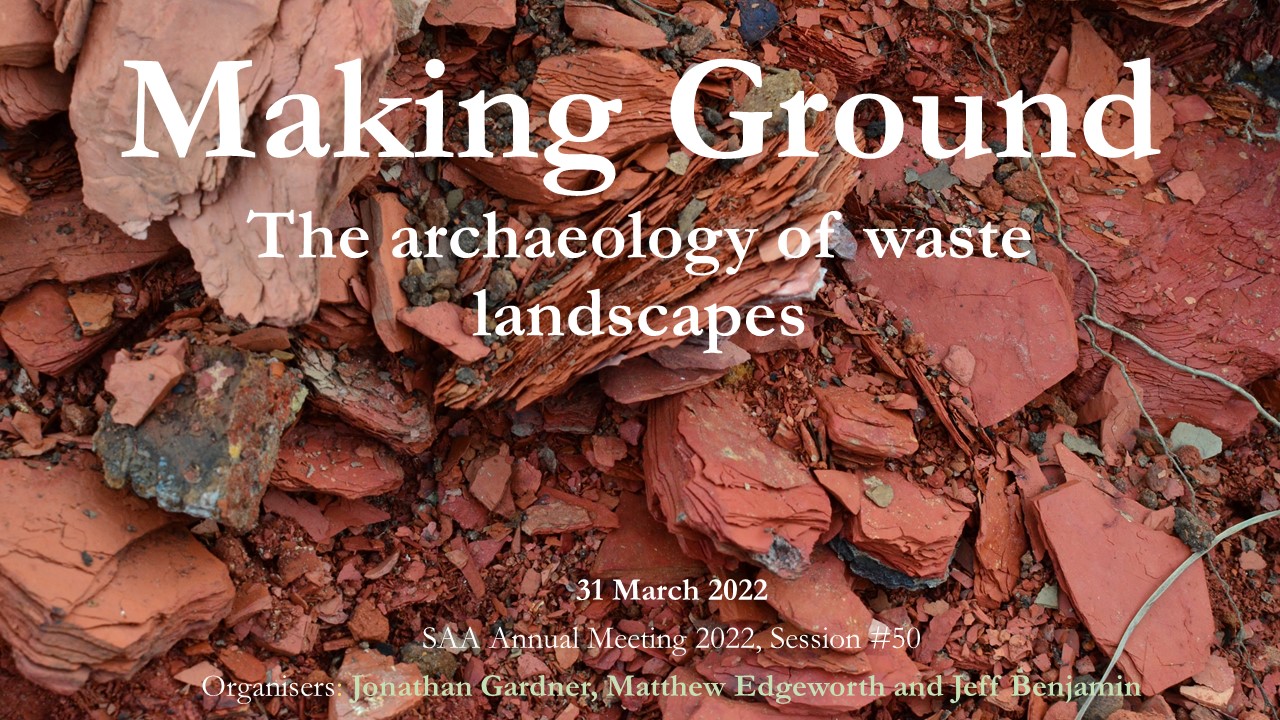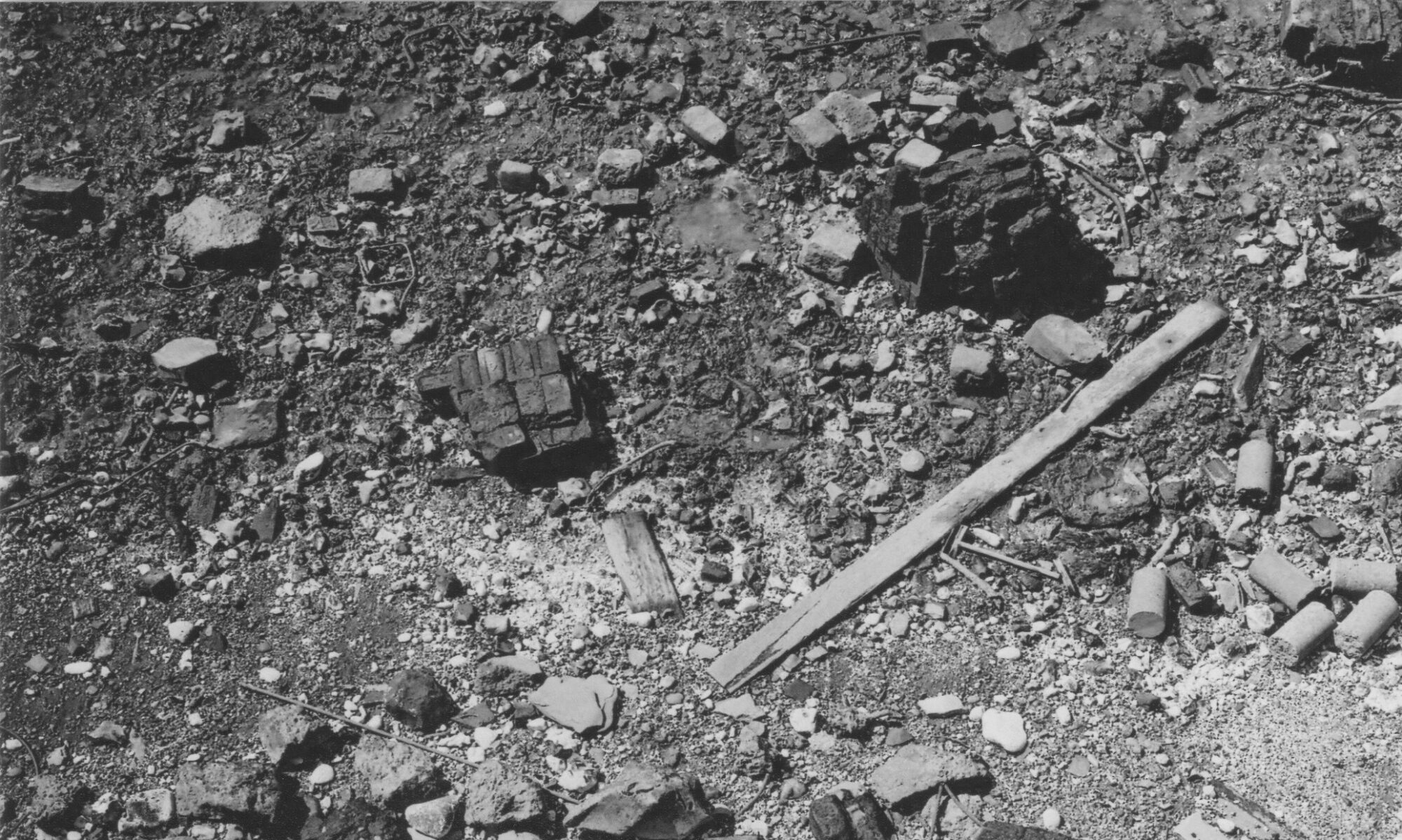Conference Session at Society for American Archaeology’ 87th Annual Meeting: MAKING GROUND: THE ARCHAEOLOGY OF WASTE LANDSCAPES

On 31 March 2022, the project hosted a session at the 87th Society for American Archaeology Annual Meeting in Chicago, Illinois, entitled ‘Making Ground, the Archaeology of Waste Landscapes’. This session was hosted by myself, Matt Edgeworth (University of Leicester) and Jeff Benjamin (Columbia).
About
In the session contributors presented research connected with landscapes that have been created from the mass deposition of waste, trash, and rubble and that are understood as part of the global signature of the Anthropocene. Such sites include large industrial spoil heaps, ‘dark earth’ deposits, demolition dumps, land-reclamations, landfills, and conflict landscapes. While sometimes considered useless ‘wastelands’, such novel or modified landscapes rarely not remain denigrated or unused for long, and can spark off new uses and inhabitation, even to the extent that their anthropogenic origins become forgotten. While archaeologists and discard studies scholars have long ‘mined’ refuse as a rich source of data on many aspects of human life, seemingly little archaeological investigation has examined the origins and uses of waste-made terrain as a unified subject in its own right.
The contributions were drawn from a broad variety of temporal and spatial contexts, including work in Southeast Asia, Europe, North and Central America, and Oceania. Each contributor engaged with a variety of novel conceptualisations of how such materials and landscapes are valued and experienced in different contexts.
The session was well attended and was followed by an excellent discussion.
Plans are afoot to turn the session into a special issue for the Journal of Contemporary Archaeology. Watch out here on the blog and Twitter for more updates!
Line-up
(More info and abstracts here [pdf]).
| Jonathan Gardner | Gaining Ground: Demolition Waste as Raw Material |
| Elizabeth Graham, Richard Macphail, Julia Stegemann, Simon Turner and Daniel Evans | A Dirty Business |
| Estelle Praet, Raveena Tamoria and John Schofield | Trouble in Paradise: Archaeology’s Role in the Multidisciplinary Study of Waste Landscapes in and around Galapagos |
| Angela McClanahan-Simmons | Cultural Projects, “Edgelands,” and the Permanent Reimagining of Landscape |
| Matthew Edgeworth | Up-scaling Archaeological Methods to Deal with Waste Landscapes |
| Alexa Spiwak | Bastard Rock, Bastard Landscapes: Remnants of the North Wales Slate Industry |
| Hilary Orange | Waste Heaps as High Points: Lighting IBA Emscher Park |
| Catherine Fennell and Rebecca Graff | Chicago’s Wastelands |
| Jeff Benjamin | The Plate and the Print: Figure and Field in the Anthropocene |
| Esther Breithoff | Conflict Landscapes as Outdoor Museums: The Arts of Living on a Damaged Planet in Laos and Beyond |
